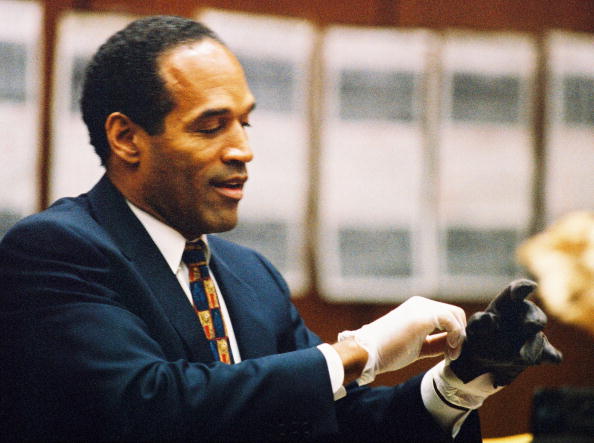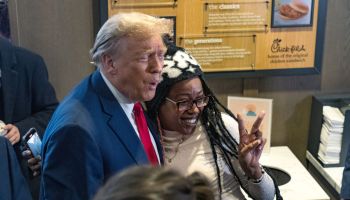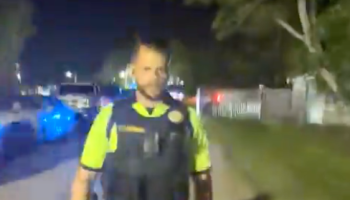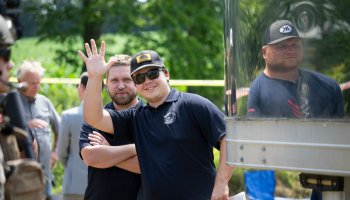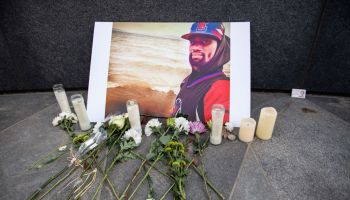WASHINGTON — She didn’t come from a wealthy or well-connected family. She came from the South Side of Chicago and is a descendant of slaves. But she says it’s a passion for an education that she and President Barack Obama shared and a willingness to work hard that helped them become successful.
It’s a message that young leaders in Africa soon will hear when Mrs. Obama makes her second solo trip abroad as first lady, visiting South Africa and Botswana this coming week.
“In so many ways, I see myself in you all. And I want you to see yourselves in me,” she recently told Washington high school students, hoping to inspire them with her personal story.
The weeklong visit, beginning with the first lady’s arrival Monday in Johannesburg, is intended to improve relations between the U.S. and Africa and promote youth engagement, education, health and wellness. In the centerpiece speech of the trip, she will appear Wednesday before a U.S.-sponsored forum of young women leaders from sub-Saharan Africa.
The president is not going, but Mrs. Obama will be joined by her daughters, Malia and Sasha, as well as her mother, Marian Robinson, and a niece and nephew, Leslie and Avery Robinson. Her family will join her on most outings, probably exposing her daughters to more of the media spotlight than they’re used to.
It was during her first solo trip outside the U.S., to Mexico in April 2010, that the first lady started an effort to encourage young people to become involved in their communities and countries and not shy away from trying to solve persistent global problems.
The youth population outside the U.S. is growing fast, with young people ages 15 to 24 making up 20 percent of the world’s population.
“The fact is is that responsibility for meeting the defining challenges of our time will soon fall to all of you,” Mrs. Obama told thousands of university students in Mexico City. “Soon, the world will be looking to your generation to make the discoveries and to build the industries that will fuel our prosperity and ensure our well-being for decades to come.”
That message is likely to resonate in a place such as South Africa, where two of three residents are younger than 30, said Jennifer Cooke, an Africa scholar at the Center for Strategic and International Studies, a Washington think tank.
Botswana is a regular stop for U.S. officials. Well governed, it is considered one of Africa’s best functioning democracies, Cooke said.
Many of the stops on Mrs. Obama’s trip will highlight South Africa’s past under apartheid, the system of white-minority rule. She’ll also pay tribute to the legacy of Nelson Mandela, who spent 27 years in prison for his role in the anti-apartheid movement. He later became South Africa’s first elected black president.
The size of Mrs. Obama’s traveling party is sure to invite comparisons to her vacation last August in Spain with Sasha and friends. The five-day trip to Spain’s Costa del Sol stoked a bit of a firestorm about the wisdom of taking a glamorous trip with such economic hurt at home and raised speculation about who was paying the bill.
Attempting to head off similar criticism this time, the White House said Mrs. Obama is allowed to bring guests with her on the plane because she’s on official U.S. business, as the president is allowed on his official trips. All other costs regarding her family are to be paid for privately.
Mrs. Obama’s visit opens Tuesday in Pretoria, the South African capital, at a meeting with Nompumelelo Ntuli-Zuma, one of President Jacob Zuma’s three wives, at his official residence. Zuma was scheduled to be out of the country. Back in Johannesburg, Mrs. Obama meets with Mandela’s wife, Graca Machel, and tours the Nelson Mandela Foundation and the Apartheid Museum.
A meeting between America’s first black first lady and the 92-year-old former president is hoped for but remained in doubt, given his fragile health. Mandela had an acute respiratory infection in late January that led to a two-day hospital stay. He retired from public life after leaving office in 1999 after one term, but remains a larger-than-life figure in his country and around the world.
Mrs. Obama delivers her speech Wednesday at the Regina Mundi Church in the black township of Soweto, one of many churches that became hubs of activity for political gatherings after such meetings were banned during the anti-apartheid movement. She’ll also view a memorial honoring a 13-year-old boy shot and killed by government police during a June 1976 student uprising in Soweto.
In Cape Town on Thursday, Mrs. Obama and her family will ride a ferry to Robben Island for a moving visit to the closet-sized cell where Mandela spent 18 of his 27 years in prison.
She’ll highlight education by inviting disadvantaged students to spend the day immersed at the University of Cape Town, before meeting with groups that work to halt the spread of HIV/AIDS in South Africa, including by using soccer to teach children about the deadly disease. Between 5 million and 6 million South Africans live with HIV/AIDS.
Mrs. Obama also was scheduled to meet with Archbishop Desmond Tutu, a Nobel Peace Prize laureate and key figure in the struggle against apartheid and in later helping South Africa overcome its past.
She heads to Botswana on Friday to call on President Ian Khama in Gaborone, the capital, and drop in at a combination clinic and center for teenagers that teaches about leadership and HIV/AIDS.
With the official business concluded by Saturday, the first lady and her family will head off for private time, including a safari and an overnight stay in the animal park.
RELATED:
